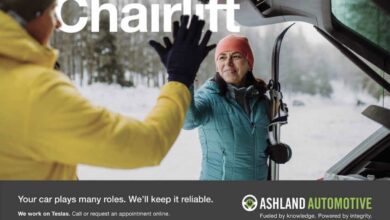Winter Driving
For many of us, holiday travel is fast approaching. We’ll soon pack our cars, pour a thermos of coffee, download our audiobooks, and go the distance to spend time with our loved ones. The drive can be a fun part of the vacation, so long as we’re prepared.
I was recently driving to Bend and came upon an accident which ultimately left hundreds, if not thousands of people, stranded on Highway 97 for over two hours. Thankfully, everyone involved survived the crash. As the rescue crew worked to clear the accident, I was left with some time on my hands. I always keep emergency supplies in my trunk, but wondered how many others in this same jam were prepared– and how much worse things would have been had there been snow or freezing temperatures. I recommend that you keep the following items in your car (just in case): a medium-sized box with a gallon of water (don’t leave it in the car overnight in the plastic container), an emergency blanket (preferably wool), USB mobile device charger, flashlight with batteries, a small first aid kit, car owner’s manual, cardboard or carpet remnant you can place under tires for traction in the snow, jumper cables, a quart of oil, some latex gloves, duct tape, and some tools (you might not need these, but I sometimes do). Tire chains are required by Oregon state law for mountain driving, so be sure to keep a set in your car. As for the car itself, make sure you have good wipers, that your tires are in good shape (these items are checked in scheduled maintenances), and that you have a spare along with a tire jack and tire iron. Also, if your wheels require a special security key, make sure that’s always in your car too. Fill up the fuel tank often, and plan ahead for your fuel stops.
Even worse than being caught in traffic is being in the car that breaks down. So what can you do to minimize the risk of breakdown before hitting the highway? Preventative maintenance is key to keeping your car in tip-top health. Scheduled maintenances include thorough inspections, which are meant to reveal potential problems long before they multiply and bring more problems. Tires, suspension, mechanical and hydraulic brake components, belts, hoses, rotating parts, fluid levels and conditions are all included in these inspections. Most importantly, these inspections bring peace of mind to a traveler. Let’s think about the unexpected failure. If a breakdown does happen during holiday travel, you’re likely to need a tow. You’ll end up at a shop which you know nothing about in a town with which you’re unfamiliar. The shop will likely be busy, or worse yet, buried with emergency repairs. You’ll be stuck until they can track down parts and carve out time to make repairs. In the meantime, you’re staying in a hotel or renting a car, both of which are also hard to do with short notice. By scheduling regular maintenance, you’re stacking the odds in your favor.
Most manufacturers recommend service every 30,000 miles. When was your car serviced last? Even if you’ve recently had a big repair performed, that’s no guarantee that your technician is aware of problems or potential problems outside the area that was fixed. Visit our website here to schedule your service appointment before getting back on the road. We’re happy to inspect your car, and get you safely on your way. Our best wishes to you for a very happy and safe holiday season.
Ashland Automotive
280 E Hersey St #15
Ashland, OR
97520
(541) 482-4042




